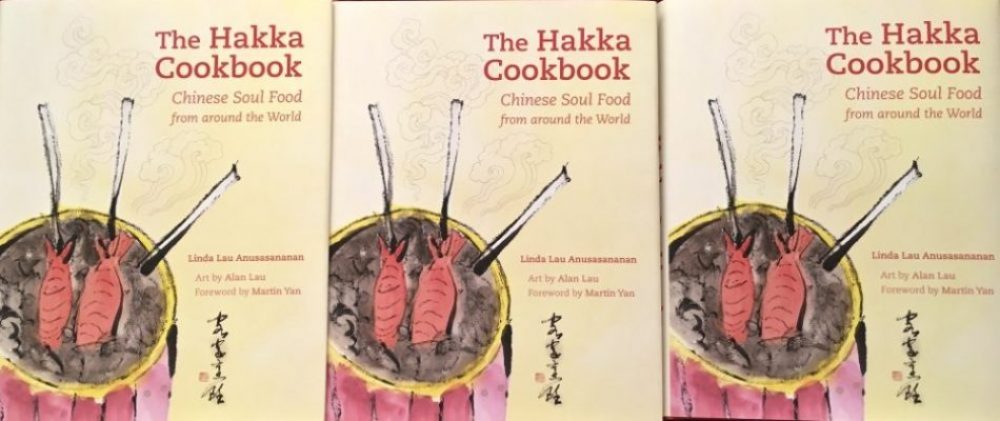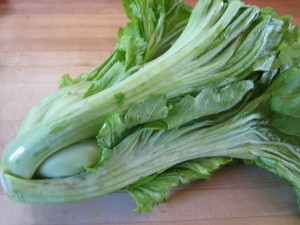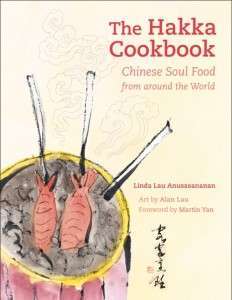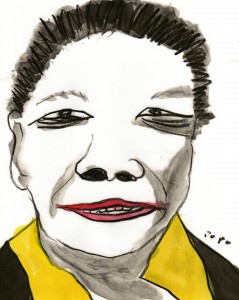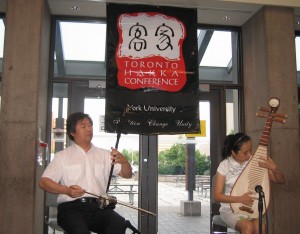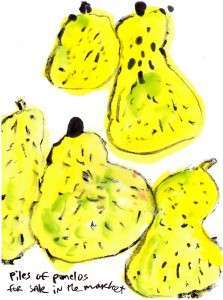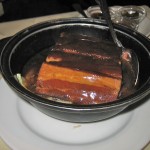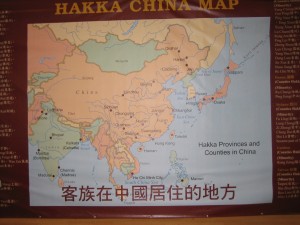Last week, I gave a presentation at the ACCT dinner in San Francisco. They wanted a small taste of a recipe from the book. When I heard 180 people were attending, I turned to one of the easiest recipes in the book, Pickled Mustard Greens (p. 147). I have used this recipe often for book signing events, because it can be made ahead, served cold, and provide a small taste to great many people.
The key to the recipe are the mustard greens. The ones used for pickles have big broad leaves and thick wide stems are generally most available in cool weather months. Sometimes they are called dai gai choy. Since they are sold mostly for pickles, sometimes the leaves are trimmed off. The heads and stems may be straight, but are often curved into a semiclosed heart.
Just a week before the dinner, I was surprised to find these greens at the San Mateo Farmers Market where I shop every Saturday. The Hmong farmer was so pleased that I bought six big heads, that she brought them again the following week. She said that although she grows them, she didn’t usually bring them to this market because she didn’t think people would buy them. She also pickles them to eat at home. If you can’t find them at the farmers’ market, most Asian markets carry them in the winter.
This recipe comes from Hawaii resident Margaret Lai who grew up in Tahiti where the Hakka made up the majority of the Chinese population. Her easy pickles have a strong sweet-sour punch and are far crisper than purchased pickles.
Pickled Mustard Greens
Makes 3 to 4 cups
3/4 to 1 1/4 pounds broad-stemmed Chinese mustard greens
2/3 cup rice vinegar or distilled white vinegar
2/3 cup sugar
1/2 teaspoon sea salt or table salt
1. Pull apart the mustard greens and separate the stems. Cut the stems and thicker part of the leaves into 1-inch pieces to make 4 to 5 cups. Wash and drain the greens. Reserve leaves for soup or other stir-fries.
2. In a 3- to 4-quart pan over high heat, bring about 1 1/2 quarts water to a boil. Add the mustard greens to the boiling water. Stir to separate. Drain and rinse with cold water to cool.
3. In a bowl, mix the vinegar, sugar, and salt until the sugar dissolves. Stir in the mustard greens. Cover the bowl and let stand at room temperature overnight. Transfer the mixture to a smaller container. Cover and chill until the pickles are yellowish-green and sweet and tangy, 2 to 3 days. Store in refrigerator up to 2 to 3 months.
